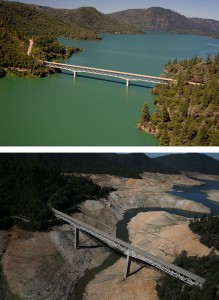Over winter break last year I was on a hike in the hills around my home in San Rafael, California with my two siblings. It was in that space of time between Christmas and New Years and it was an incredible day; not a cloud in the sky and perfectly warm sunshine was hitting us. I have spent long mornings and afternoons throughout my life running and hiking in them, surrounded on either side by tall grasses and oak trees. When you get to the top you are guaranteed a particularly beautiful view of the Bay Area. You can see the Golden Gate Bridge and all the way to the financial district of San Francisco, the East Bay, the Headlands, and the beginnings of Napa.
We were taking a break near the top, gazing at our stunning surroundings. But instead of being comforted by the familiar sights I was on edge looking around. The grass should have be green this time of year but it was the color of straw, we hadn’t needed to jump the creek as we normally did in December; this was the landscape I knew as summertime not winter.
California is in the middle of the worst drought it has ever had on record. In parts of the state the ground has raised up to half an inch because water is no longer weighing it down. Just in the last few years the landscape of my home is being completely altered because of climate change.
I do not consider my self a scientist or even a scientist in the making. Nor have I ever really attempted to delve into the world of science aside from the mandatory classes in elementary through high school. However, in The Discovery of Global Warming, Spencer Weart lead his audience not just through the scientific milestones behind our current understanding of climate change but how other major historical events interacted and informed the blunt science. From the 1896 calculation that asserted global warming was possible through human emissions to the media coverage informing the public in the 80s. The fact is the weather has been changing since the beginning of the industrial revolution and it has been swift. However, we are reaching a point where the consequences are dire if action is not taken just as rapidly.
While reading this book I thought back to that moment with my siblings when I fully understood for the first time that climate change is not in the future, it is here. I also thought back to a poem by Donald Marquis entitled “What the Ants are Saying.” For me, one stanza sums up all the science I know and the personal experiences I have with climate change:
what man calls civilization
always results in deserts
man is never on the square
he uses up the fat and greenery of the earth
each generation wastes a little more
of the future with greed and lust for riches

